afterLoad (456.33KB) (1.69ms)
afterInitialise (1.27MB) (27.2ms)
afterRoute (840.53KB) (10.28ms)
beforeRenderComponent com_tags (21.4KB) (1.89ms)
afterRenderComponent com_tags (2.18MB) (122ms)
afterDispatch (42.16KB) (4.82ms)
beforeRenderRawModule mod_articles_category (READ MORE...) (423.96KB) (15.96ms)
Before Access::preloadComponents (all components) (50.9KB) (380μs)
After Access::preloadComponents (all components) (103.05KB) (6.82ms)
Before Access::getAssetRules (id:8 name:com_content) (840B) (18μs)
After Access::getAssetRules (id:8 name:com_content) (7.05KB) (43μs)
afterRenderRawModule mod_articles_category (READ MORE...) (5.21KB) (79.37ms)
beforeRenderRawModule mod_custom (BOOST YOUR IMMUNE DEFENSE) (6.45KB) (25μs)
afterRenderRawModule mod_custom (BOOST YOUR IMMUNE DEFENSE) (3.8KB) (162μs)
beforeRenderRawModule mod_tags_popular (Search) (2.36KB) (15μs)
afterRenderRawModule mod_tags_popular (Search) (23.71KB) (93.9ms)
beforeRenderRawModule mod_custom (Get additionel and more detailed knowledge ) (816B) (26μs)
afterRenderRawModule mod_custom (Get additionel and more detailed knowledge ) (1.55KB) (44μs)
beforeRenderRawModule mod_custom (Overview of vitamins, minerals, and essential fatty acids) (768B) (11μs)
afterRenderRawModule mod_custom (Overview of vitamins, minerals, and essential fatty acids) (960B) (23μs)
beforeRenderRawModule mod_custom (Q10 goes by many names) (608B) (9μs)
afterRenderRawModule mod_custom (Q10 goes by many names) (928B) (20μs)
beforeRenderRawModule mod_custom (Check this before you buy a Q10 product) (752B) (9μs)
afterRenderRawModule mod_custom (Check this before you buy a Q10 product) (944B) (18μs)
beforeRenderRawModule mod_custom (Are you taking supplements) (736B) (9μs)
afterRenderRawModule mod_custom (Are you taking supplements) (1.03KB) (17μs)
beforeRenderRawModule mod_custom (Weight loss that works) (736B) (8μs)
afterRenderRawModule mod_custom (Weight loss that works) (1.03KB) (18μs)
beforeRenderRawModule mod_custom (Antiaging) (720B) (9μs)
afterRenderRawModule mod_custom (Antiaging) (912B) (17μs)
beforeRenderRawModule mod_menu (Are you getting enough vitamins and minerals?) (2.5KB) (11μs)
afterRenderRawModule mod_menu (Are you getting enough vitamins and minerals?) (22.39KB) (445μs)
beforeRenderRawModule mod_menu (The key to increased well-being) (736B) (21μs)
afterRenderRawModule mod_menu (The key to increased well-being) (17.83KB) (243μs)
beforeRenderRawModule mod_menu (Did you know.....) (720B) (15μs)
afterRenderRawModule mod_menu (Did you know.....) (25.52KB) (272μs)
beforeRenderRawModule mod_custom (Useful Links) (1.06KB) (13μs)
afterRenderRawModule mod_custom (Useful Links) (1.02KB) (30μs)
beforeRenderRawModule mod_custom (Chronic fatigue tied Alan to his bed but Q10 capsules saved him:) (244.28KB) (1.97ms)
afterRenderRawModule mod_custom (Chronic fatigue tied Alan to his bed but Q10 capsules saved him:) (1.06KB) (41μs)
beforeRenderModule mod_custom (Chronic fatigue tied Alan to his bed but Q10 capsules saved him:) (768B) (4μs)
afterRenderModule mod_custom (Chronic fatigue tied Alan to his bed but Q10 capsules saved him:) (1.3KB) (57μs)
beforeRenderRawModule mod_custom (Cholesterol-lowering without side effects:) (368B) (13μs)
afterRenderRawModule mod_custom (Cholesterol-lowering without side effects:) (1.06KB) (22μs)
beforeRenderModule mod_custom (Cholesterol-lowering without side effects:) (752B) (2μs)
afterRenderModule mod_custom (Cholesterol-lowering without side effects:) (1.28KB) (31μs)
beforeRenderModule mod_articles_category (READ MORE...) (20.82KB) (341μs)
afterRenderModule mod_articles_category (READ MORE...) (1.25KB) (44μs)
beforeRenderModule mod_custom (BOOST YOUR IMMUNE DEFENSE) (6.81KB) (14μs)
afterRenderModule mod_custom (BOOST YOUR IMMUNE DEFENSE) (1.28KB) (25μs)
beforeRenderModule mod_tags_popular (Search) (1.98KB) (11μs)
afterRenderModule mod_tags_popular (Search) (1.27KB) (23μs)
beforeRenderModule mod_custom (Get additionel and more detailed knowledge ) (1.17KB) (9μs)
afterRenderModule mod_custom (Get additionel and more detailed knowledge ) (1.3KB) (22μs)
beforeRenderModule mod_custom (Overview of vitamins, minerals, and essential fatty acids) (384B) (9μs)
afterRenderModule mod_custom (Overview of vitamins, minerals, and essential fatty acids) (1.31KB) (21μs)
beforeRenderModule mod_custom (Q10 goes by many names) (208B) (9μs)
afterRenderModule mod_custom (Q10 goes by many names) (1.27KB) (22μs)
beforeRenderModule mod_custom (Check this before you buy a Q10 product) (352B) (9μs)
afterRenderModule mod_custom (Check this before you buy a Q10 product) (1.28KB) (21μs)
beforeRenderModule mod_custom (Are you taking supplements) (352B) (8μs)
afterRenderModule mod_custom (Are you taking supplements) (1.28KB) (21μs)
beforeRenderModule mod_custom (Weight loss that works) (336B) (9μs)
afterRenderModule mod_custom (Weight loss that works) (1.27KB) (20μs)
beforeRenderModule mod_custom (Antiaging) (336B) (9μs)
afterRenderModule mod_custom (Antiaging) (3.77KB) (21μs)
beforeRenderModule mod_menu (Are you getting enough vitamins and minerals?) (2.13KB) (11μs)
afterRenderModule mod_menu (Are you getting enough vitamins and minerals?) (1.3KB) (20μs)
beforeRenderModule mod_menu (The key to increased well-being) (352B) (10μs)
afterRenderModule mod_menu (The key to increased well-being) (1.28KB) (20μs)
beforeRenderModule mod_menu (Did you know.....) (336B) (10μs)
afterRenderModule mod_menu (Did you know.....) (1.27KB) (20μs)
beforeRenderModule mod_custom (Useful Links) (1.44KB) (9μs)
afterRenderModule mod_custom (Useful Links) (1.27KB) (21μs)
beforeRenderRawModule mod_menu (Main Menu - English) (29.14KB) (687μs)
afterRenderRawModule mod_menu (Main Menu - English) (186.95KB) (1.4ms)
beforeRenderModule mod_menu (Main Menu - English) (720B) (4μs)
afterRenderModule mod_menu (Main Menu - English) (4.86KB) (57μs)
beforeRenderRawModule mod_languages (Sprogskift) (3.94KB) (17μs)
afterRenderRawModule mod_languages (Sprogskift) (22.39KB) (1.46ms)
beforeRenderModule mod_languages (Sprogskift) (720B) (5μs)
afterRenderModule mod_languages (Sprogskift) (5.31KB) (21μs)
beforeRenderRawModule mod_finder () (6.34KB) (11μs)
afterRenderRawModule mod_finder () (128.59KB) (1.58ms)
beforeRenderModule mod_finder () (704B) (5μs)
afterRenderModule mod_finder () (3.29KB) (32μs)
beforeRenderRawModule mod_custom () (6.62KB) (141μs)
afterRenderRawModule mod_custom () (22.68KB) (810μs)
beforeRenderModule mod_custom () (704B) (6μs)
afterRenderModule mod_custom () (1.23KB) (52μs)
beforeRenderRawModule mod_menu (Main Menu - English) (5.07KB) (105μs)
afterRenderRawModule mod_menu (Main Menu - English) (6.3KB) (756μs)
beforeRenderModule mod_menu (Main Menu - English) (720B) (4μs)
afterRenderModule mod_menu (Main Menu - English) (1.25KB) (91μs)
beforeRenderRawModule mod_languages (Sprogskift Mobil) (912B) (18μs)
afterRenderRawModule mod_languages (Sprogskift Mobil) (3.89KB) (720μs)
beforeRenderModule mod_languages (Sprogskift Mobil) (720B) (3μs)
afterRenderModule mod_languages (Sprogskift Mobil) (1.27KB) (33μs)
beforeRenderRawModule mod_finder () (2.3KB) (10μs)
afterRenderRawModule mod_finder () (6.25KB) (561μs)
beforeRenderModule mod_finder () (704B) (4μs)
afterRenderModule mod_finder () (1.23KB) (45μs)
beforeRenderRawModule mod_custom () (8.66KB) (178μs)
afterRenderRawModule mod_custom () (904B) (130μs)
beforeRenderModule mod_custom () (704B) (2μs)
afterRenderModule mod_custom () (2.43KB) (23μs)
beforeRenderRawModule mod_custom () (688B) (78μs)
afterRenderRawModule mod_custom () (896B) (95μs)
beforeRenderModule mod_custom () (704B) (3μs)
afterRenderModule mod_custom () (2.71KB) (21μs)
afterRender (428.42KB) (6.26ms)
| 1 x afterRenderComponent com_tags (2.18MB) (31.74%) | 122.15ms |
| 1 x afterRenderRawModule mod_tags_popular (Search) (23.71KB) (24.4%) | 93.90ms |
| 1 x afterRenderRawModule mod_articles_category (READ MORE...) (5.21KB) (20.62%) | 79.37ms |
| 1 x afterInitialise (1.27MB) (7.07%) | 27.20ms |
| 1 x beforeRenderRawModule mod_articles_category (READ MORE...) (423.96KB) (4.15%) | 15.96ms |
| 1 x afterRoute (840.53KB) (2.67%) | 10.28ms |
| 1 x After Access::preloadComponents (all components) (103.05KB) (1.77%) | 6.82ms |
| 1 x afterRender (428.42KB) (1.63%) | 6.26ms |
| 1 x afterDispatch (42.16KB) (1.25%) | 4.82ms |
| 1 x beforeRenderRawModule mod_custom (Chronic fatigue tied Alan to his bed but Q10 capsules saved him:) (244.28KB) (0.51%) | 1.97ms |
| 1 x beforeRenderComponent com_tags (21.4KB) (0.49%) | 1.89ms |
| 1 x afterLoad (456.33KB) (0.44%) | 1.69ms |
| 1 x afterRenderRawModule mod_finder () (128.59KB) (0.41%) | 1.58ms |
| 1 x afterRenderRawModule mod_languages (Sprogskift) (22.39KB) (0.38%) | 1.46ms |
| 1 x afterRenderRawModule mod_menu (Main Menu - English) (186.95KB) (0.36%) | 1.40ms |
| 1 x afterRenderRawModule mod_custom () (22.68KB) (0.21%) | 810μs |
| 1 x afterRenderRawModule mod_menu (Main Menu - English) (6.3KB) (0.2%) | 756μs |
| 1 x afterRenderRawModule mod_languages (Sprogskift Mobil) (3.89KB) (0.19%) | 720μs |
| 1 x beforeRenderRawModule mod_menu (Main Menu - English) (29.14KB) (0.18%) | 687μs |
| 1 x afterRenderRawModule mod_finder () (6.25KB) (0.15%) | 561μs |
| 1 x afterRenderRawModule mod_menu (Are you getting enough vitamins and minerals?) (22.39KB) (0.12%) | 445μs |
| 1 x Before Access::preloadComponents (all components) (50.9KB) (0.1%) | 380μs |
| 1 x beforeRenderModule mod_articles_category (READ MORE...) (20.82KB) (0.09%) | 341μs |
| 1 x afterRenderRawModule mod_menu (Did you know.....) (25.52KB) (0.07%) | 272μs |
| 1 x afterRenderRawModule mod_menu (The key to increased well-being) (17.83KB) (0.06%) | 243μs |
| 1 x beforeRenderRawModule mod_custom () (8.66KB) (0.05%) | 178μs |
| 1 x afterRenderRawModule mod_custom (BOOST YOUR IMMUNE DEFENSE) (3.8KB) (0.04%) | 162μs |
| 1 x beforeRenderRawModule mod_custom () (6.62KB) (0.04%) | 141μs |
| 1 x afterRenderRawModule mod_custom () (904B) (0.03%) | 130μs |
| 1 x beforeRenderRawModule mod_menu (Main Menu - English) (5.07KB) (0.03%) | 105μs |
| 1 x afterRenderRawModule mod_custom () (896B) (0.02%) | 95μs |
| 1 x afterRenderModule mod_menu (Main Menu - English) (1.25KB) (0.02%) | 91μs |
| 1 x beforeRenderRawModule mod_custom () (688B) (0.02%) | 78μs |
| 1 x afterRenderModule mod_custom (Chronic fatigue tied Alan to his bed but Q10 capsules saved him:) (1.3KB) (0.01%) | 57μs |
| 1 x afterRenderModule mod_menu (Main Menu - English) (4.86KB) (0.01%) | 57μs |
| 1 x afterRenderModule mod_custom () (1.23KB) (0.01%) | 52μs |
| 1 x afterRenderModule mod_finder () (1.23KB) (0.01%) | 45μs |
| 1 x afterRenderModule mod_articles_category (READ MORE...) (1.25KB) (0.01%) | 44μs |
| 1 x afterRenderRawModule mod_custom (Get additionel and more detailed knowledge ) (1.55KB) (0.01%) | 44μs |
| 1 x After Access::getAssetRules (id:8 name:com_content) (7.05KB) (0.01%) | 43μs |
| 1 x afterRenderRawModule mod_custom (Chronic fatigue tied Alan to his bed but Q10 capsules saved him:) (1.06KB) (0.01%) | 41μs |
| 1 x afterRenderModule mod_languages (Sprogskift Mobil) (1.27KB) (0.01%) | 33μs |
| 1 x afterRenderModule mod_finder () (3.29KB) (0.01%) | 32μs |
| 1 x afterRenderModule mod_custom (Cholesterol-lowering without side effects:) (1.28KB) (0.01%) | 31μs |
| 1 x afterRenderRawModule mod_custom (Useful Links) (1.02KB) (0.01%) | 30μs |
| 1 x beforeRenderRawModule mod_custom (Get additionel and more detailed knowledge ) (816B) (0.01%) | 26μs |
| 1 x beforeRenderRawModule mod_custom (BOOST YOUR IMMUNE DEFENSE) (6.45KB) (0.01%) | 25μs |
| 1 x afterRenderModule mod_custom (BOOST YOUR IMMUNE DEFENSE) (1.28KB) (0.01%) | 25μs |
| 1 x afterRenderRawModule mod_custom (Overview of vitamins, minerals, and essential fatty acids) (960B) (0.01%) | 23μs |
| 1 x afterRenderModule mod_tags_popular (Search) (1.27KB) (0.01%) | 23μs |
| 1 x afterRenderModule mod_custom () (2.43KB) (0.01%) | 23μs |
| 1 x afterRenderRawModule mod_custom (Cholesterol-lowering without side effects:) (1.06KB) (0.01%) | 22μs |
| 1 x afterRenderModule mod_custom (Get additionel and more detailed knowledge ) (1.3KB) (0.01%) | 22μs |
| 1 x afterRenderModule mod_custom (Q10 goes by many names) (1.27KB) (0.01%) | 22μs |
| 1 x beforeRenderRawModule mod_menu (The key to increased well-being) (736B) (0.01%) | 21μs |
| 1 x afterRenderModule mod_custom (Overview of vitamins, minerals, and essential fatty acids) (1.31KB) (0.01%) | 21μs |
| 1 x afterRenderModule mod_custom (Check this before you buy a Q10 product) (1.28KB) (0.01%) | 21μs |
| 1 x afterRenderModule mod_custom (Are you taking supplements) (1.28KB) (0.01%) | 21μs |
| 1 x afterRenderModule mod_custom (Antiaging) (3.77KB) (0.01%) | 21μs |
| 1 x afterRenderModule mod_custom (Useful Links) (1.27KB) (0.01%) | 21μs |
| 1 x afterRenderModule mod_languages (Sprogskift) (5.31KB) (0.01%) | 21μs |
| 1 x afterRenderModule mod_custom () (2.71KB) (0.01%) | 21μs |
| 1 x afterRenderRawModule mod_custom (Q10 goes by many names) (928B) (0.01%) | 20μs |
| 1 x afterRenderModule mod_custom (Weight loss that works) (1.27KB) (0.01%) | 20μs |
| 1 x afterRenderModule mod_menu (Are you getting enough vitamins and minerals?) (1.3KB) (0.01%) | 20μs |
| 1 x afterRenderModule mod_menu (The key to increased well-being) (1.28KB) (0.01%) | 20μs |
| 1 x afterRenderModule mod_menu (Did you know.....) (1.27KB) (0.01%) | 20μs |
| 1 x afterRenderRawModule mod_custom (Check this before you buy a Q10 product) (944B) (0%) | 18μs |
| 1 x afterRenderRawModule mod_custom (Weight loss that works) (1.03KB) (0%) | 18μs |
| 1 x Before Access::getAssetRules (id:8 name:com_content) (840B) (0%) | 18μs |
| 1 x beforeRenderRawModule mod_languages (Sprogskift Mobil) (912B) (0%) | 18μs |
| 1 x beforeRenderRawModule mod_languages (Sprogskift) (3.94KB) (0%) | 17μs |
| 1 x afterRenderRawModule mod_custom (Are you taking supplements) (1.03KB) (0%) | 17μs |
| 1 x afterRenderRawModule mod_custom (Antiaging) (912B) (0%) | 17μs |
| 1 x beforeRenderRawModule mod_tags_popular (Search) (2.36KB) (0%) | 15μs |
| 1 x beforeRenderRawModule mod_menu (Did you know.....) (720B) (0%) | 15μs |
| 1 x beforeRenderModule mod_custom (BOOST YOUR IMMUNE DEFENSE) (6.81KB) (0%) | 14μs |
| 1 x beforeRenderRawModule mod_custom (Useful Links) (1.06KB) (0%) | 13μs |
| 1 x beforeRenderRawModule mod_custom (Cholesterol-lowering without side effects:) (368B) (0%) | 13μs |
| 1 x beforeRenderRawModule mod_finder () (6.34KB) (0%) | 11μs |
| 1 x beforeRenderRawModule mod_custom (Overview of vitamins, minerals, and essential fatty acids) (768B) (0%) | 11μs |
| 1 x beforeRenderRawModule mod_menu (Are you getting enough vitamins and minerals?) (2.5KB) (0%) | 11μs |
| 1 x beforeRenderModule mod_tags_popular (Search) (1.98KB) (0%) | 11μs |
| 1 x beforeRenderModule mod_menu (Are you getting enough vitamins and minerals?) (2.13KB) (0%) | 11μs |
| 3 x beforeRenderModule mod_custom () (704B) (0%) | 11μs |
| 1 x beforeRenderModule mod_menu (The key to increased well-being) (352B) (0%) | 10μs |
| 1 x beforeRenderModule mod_menu (Did you know.....) (336B) (0%) | 10μs |
| 1 x beforeRenderRawModule mod_finder () (2.3KB) (0%) | 10μs |
| 1 x beforeRenderRawModule mod_custom (Q10 goes by many names) (608B) (0%) | 9μs |
| 1 x beforeRenderRawModule mod_custom (Are you taking supplements) (736B) (0%) | 9μs |
| 1 x beforeRenderRawModule mod_custom (Antiaging) (720B) (0%) | 9μs |
| 1 x beforeRenderModule mod_custom (Get additionel and more detailed knowledge ) (1.17KB) (0%) | 9μs |
| 1 x beforeRenderModule mod_custom (Overview of vitamins, minerals, and essential fatty acids) (384B) (0%) | 9μs |
| 1 x beforeRenderModule mod_custom (Q10 goes by many names) (208B) (0%) | 9μs |
| 1 x beforeRenderModule mod_custom (Check this before you buy a Q10 product) (352B) (0%) | 9μs |
| 1 x beforeRenderModule mod_custom (Weight loss that works) (336B) (0%) | 9μs |
| 1 x beforeRenderModule mod_custom (Antiaging) (336B) (0%) | 9μs |
| 1 x beforeRenderModule mod_custom (Useful Links) (1.44KB) (0%) | 9μs |
| 2 x beforeRenderModule mod_finder () (704B) (0%) | 9μs |
| 1 x beforeRenderRawModule mod_custom (Check this before you buy a Q10 product) (752B) (0%) | 9μs |
| 1 x beforeRenderRawModule mod_custom (Weight loss that works) (736B) (0%) | 8μs |
| 1 x beforeRenderModule mod_custom (Are you taking supplements) (352B) (0%) | 8μs |
| 2 x beforeRenderModule mod_menu (Main Menu - English) (720B) (0%) | 8μs |
| 1 x beforeRenderModule mod_languages (Sprogskift) (720B) (0%) | 5μs |
| 1 x beforeRenderModule mod_custom (Chronic fatigue tied Alan to his bed but Q10 capsules saved him:) (768B) (0%) | 4μs |
| 1 x beforeRenderModule mod_languages (Sprogskift Mobil) (720B) (0%) | 3μs |
| 1 x beforeRenderModule mod_custom (Cholesterol-lowering without side effects:) (752B) (0%) | 2μs |
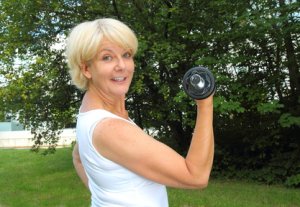 Undernourishment and lack of protein is common among older people. Evidence even suggests that the recommended daily intake of protein is too low, at least as far as seniors is concerned. The problem is most likely a slowdown of the muscle-building enzyme processes. The quality of protein also has something to say just like the amount of physical activity is a factor.
Undernourishment and lack of protein is common among older people. Evidence even suggests that the recommended daily intake of protein is too low, at least as far as seniors is concerned. The problem is most likely a slowdown of the muscle-building enzyme processes. The quality of protein also has something to say just like the amount of physical activity is a factor.







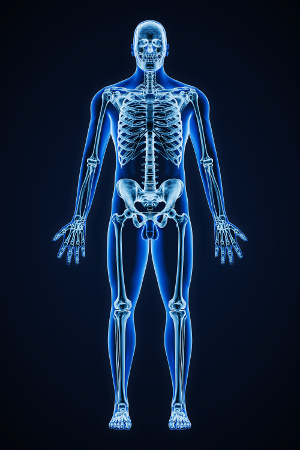
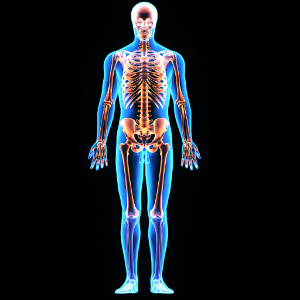
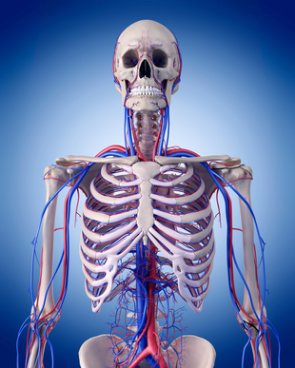 Many people take calcium supplements to prevent osteoporosis. However, research shows that high-dosage calcium supplements may harm your heart and cardiovascular system. It is important that you take
Many people take calcium supplements to prevent osteoporosis. However, research shows that high-dosage calcium supplements may harm your heart and cardiovascular system. It is important that you take 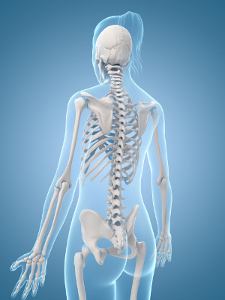 Many people avoid dairy products because they are lactose intolerant, are vegan, or for other reasons. Milk is a good source of nutrients, especially calcium, but you can easily get enough calcium from other food sources. What is more, it appears that vitamin D, vitamin K2, and the calcium/magnesium ratio is even more important than calcium alone for the structure and maintenance of strong bones. Another thing to remember is that sugar, soft drinks, stimulants, and certain types of medicine can disrupt the bone-building processes. Therefore, having strong bones is about a lot more than dairy products and calcium alone. Finally, don’t forget that daily weight-bearing exercise stimulates bone density.
Many people avoid dairy products because they are lactose intolerant, are vegan, or for other reasons. Milk is a good source of nutrients, especially calcium, but you can easily get enough calcium from other food sources. What is more, it appears that vitamin D, vitamin K2, and the calcium/magnesium ratio is even more important than calcium alone for the structure and maintenance of strong bones. Another thing to remember is that sugar, soft drinks, stimulants, and certain types of medicine can disrupt the bone-building processes. Therefore, having strong bones is about a lot more than dairy products and calcium alone. Finally, don’t forget that daily weight-bearing exercise stimulates bone density.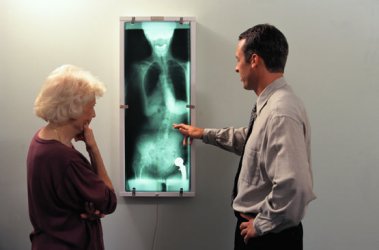 A group of leading international experts (ESCEO) says in a new report that glucosamine sulfate in a pharmaceutical grade is safe and effective in the treatment of osteoarthritis and that it can be recommended as a basic treatment of this disorder. Also chondroitin is recommended
A group of leading international experts (ESCEO) says in a new report that glucosamine sulfate in a pharmaceutical grade is safe and effective in the treatment of osteoarthritis and that it can be recommended as a basic treatment of this disorder. Also chondroitin is recommended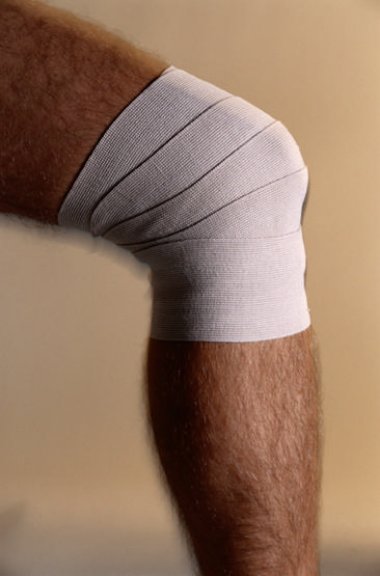 Combined supplementation with chondroitin sulphate and glucosamine could help to reduce knee joint pain, stiffness, and functional disability of people with osteoarthritis, according to new research published in the top rheumatology journal: Annals of the Rheumatic Diseases.
Combined supplementation with chondroitin sulphate and glucosamine could help to reduce knee joint pain, stiffness, and functional disability of people with osteoarthritis, according to new research published in the top rheumatology journal: Annals of the Rheumatic Diseases.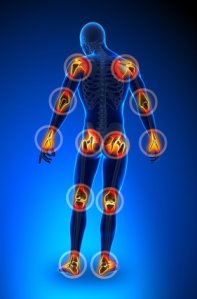 Osteoarthritis is a widespread disease that eventually affects the majority of us. The symptoms often feel worse during the wintertime. A European group of experts now recommends glucosamine sulfate as first-line treatment, before painkillers, as glucosamine sulfate is the only remedy that can prevent further progression of the disease and therefore effectively reduces the pain.
Osteoarthritis is a widespread disease that eventually affects the majority of us. The symptoms often feel worse during the wintertime. A European group of experts now recommends glucosamine sulfate as first-line treatment, before painkillers, as glucosamine sulfate is the only remedy that can prevent further progression of the disease and therefore effectively reduces the pain.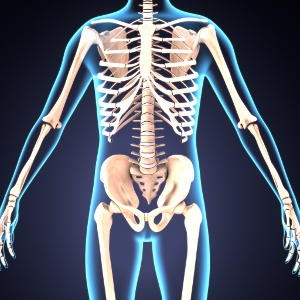
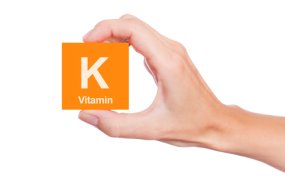
 Magnesium is an essential mineral. An adult contains around 20-30 grams of magnesium. Approximately half of the body's magnesium supply is stored in the bones. The rest is distributed in the muscles, liver, nerve tissue and other soft tissues. Magnesium is mainly found inside the cells where it supports over 300 different enzymatic processes.
Magnesium is an essential mineral. An adult contains around 20-30 grams of magnesium. Approximately half of the body's magnesium supply is stored in the bones. The rest is distributed in the muscles, liver, nerve tissue and other soft tissues. Magnesium is mainly found inside the cells where it supports over 300 different enzymatic processes.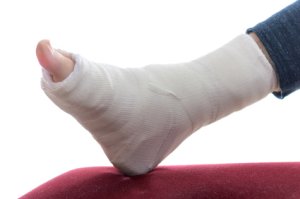 Lack of
Lack of 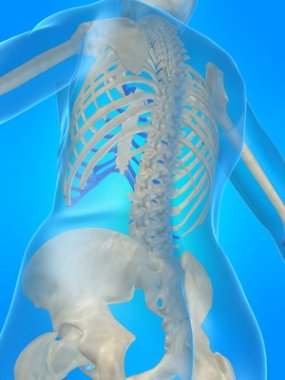 Vitamin D deficiencies are very common. They increase children's risk of developing weak bones, but they also make adults more prone to osteoporosis.
Vitamin D deficiencies are very common. They increase children's risk of developing weak bones, but they also make adults more prone to osteoporosis. Despite official recommendations to give infants a daily vitamin D supplement, nearly 50% of parents forget to follow this advice according to a large new Danish study. Not only do the children risk weak bones, it also increases their risk of infections and autism, other studies suggest.
Despite official recommendations to give infants a daily vitamin D supplement, nearly 50% of parents forget to follow this advice according to a large new Danish study. Not only do the children risk weak bones, it also increases their risk of infections and autism, other studies suggest.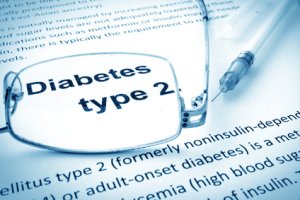 Recent studies reveal that around 20% of people who take metformin, a drug against type 2 diabetes, are
Recent studies reveal that around 20% of people who take metformin, a drug against type 2 diabetes, are 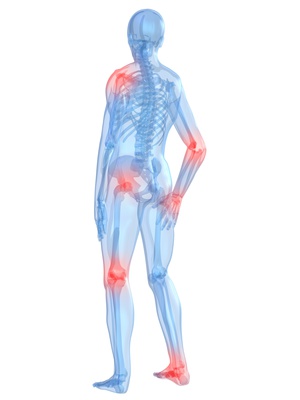 Besides causing pain in joints, osteoarthritis may lead to neck pain, headaches, back pain, tennis elbow, and other symptoms, many of which we normally wouldn't associate with osteoarthritis. It is therefore vital to address the underlying cause. An increasing number of studies show that glucosamine can halt the progression of osteoarthritis and, subsequently, slam the brakes on the accompanying pain. It is, however, important to choose glucosamine in drug form with the type of glucosamine called glucosamine sulfate in order to obtain the desired effect.
Besides causing pain in joints, osteoarthritis may lead to neck pain, headaches, back pain, tennis elbow, and other symptoms, many of which we normally wouldn't associate with osteoarthritis. It is therefore vital to address the underlying cause. An increasing number of studies show that glucosamine can halt the progression of osteoarthritis and, subsequently, slam the brakes on the accompanying pain. It is, however, important to choose glucosamine in drug form with the type of glucosamine called glucosamine sulfate in order to obtain the desired effect.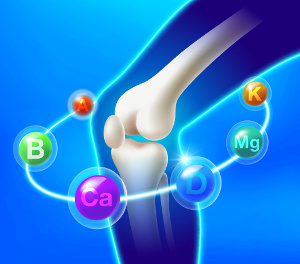
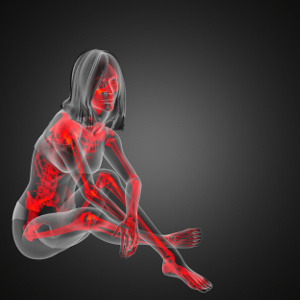 Calcium and vitamin D normally get all the attention when it comes to bone health. However, magnesium also plays a crucial, but often overlooked, role. This was demonstrated in a large population study that is published in Frontiers in Nutrition. The study links lower dietary magnesium to a greater risk of developing osteoporosis, especially for women aged 55 years and older. Osteoporosis normally takes many years to develop so it is vital to get plenty of magnesium from the diet or from supplements. Also, beware that excessive calcium intake, antacids, and diuretics block the body’s ability to absorb and utilize magnesium.
Calcium and vitamin D normally get all the attention when it comes to bone health. However, magnesium also plays a crucial, but often overlooked, role. This was demonstrated in a large population study that is published in Frontiers in Nutrition. The study links lower dietary magnesium to a greater risk of developing osteoporosis, especially for women aged 55 years and older. Osteoporosis normally takes many years to develop so it is vital to get plenty of magnesium from the diet or from supplements. Also, beware that excessive calcium intake, antacids, and diuretics block the body’s ability to absorb and utilize magnesium. An adult person contains around 800-1,200 grams of phosphor. Together with calcium, phosphor is one of the most abundant minerals in the human body and it is vital to maintain the proper balance. About 90 per cent of the body's phosphor is found in our bones and teeth. Phosphor is also an active element of many biochemical processes and even functions as the chemical compound phosphate. Phosphor is regulated in the same way as calcium where vitamin D supports the uptake from the digestive channel, a parathyroid hormone regulates the blood content of the mineral, the kidneys control the excretion, and the bones function as a storage facility.
An adult person contains around 800-1,200 grams of phosphor. Together with calcium, phosphor is one of the most abundant minerals in the human body and it is vital to maintain the proper balance. About 90 per cent of the body's phosphor is found in our bones and teeth. Phosphor is also an active element of many biochemical processes and even functions as the chemical compound phosphate. Phosphor is regulated in the same way as calcium where vitamin D supports the uptake from the digestive channel, a parathyroid hormone regulates the blood content of the mineral, the kidneys control the excretion, and the bones function as a storage facility.
 Yet another example of how vitamin D affects more than strong bones. A study has shown that babies whose mothers took vitamin D during pregnancy had a stronger hand grip and greater muscle mass. This improved muscle strength may also be able to improve their health later in life.
Yet another example of how vitamin D affects more than strong bones. A study has shown that babies whose mothers took vitamin D during pregnancy had a stronger hand grip and greater muscle mass. This improved muscle strength may also be able to improve their health later in life.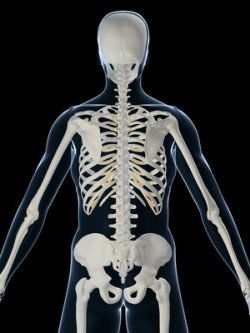 Fragile bones, also known as osteoporosis, is an insidious scourge. Science has its eyes on
Fragile bones, also known as osteoporosis, is an insidious scourge. Science has its eyes on  An only six-month-old baby died of heart failure and the following complications. The tragedy was a result of severe
An only six-month-old baby died of heart failure and the following complications. The tragedy was a result of severe 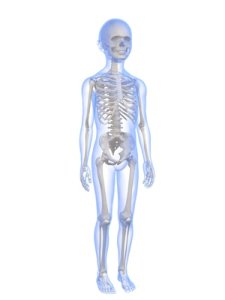 We consume far too much sugar from candy, soft beverages or in the form of concealed sugar in our food. This impairs the body’s uptake and utilization of
We consume far too much sugar from candy, soft beverages or in the form of concealed sugar in our food. This impairs the body’s uptake and utilization of 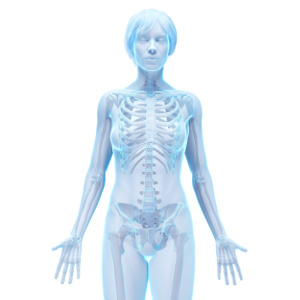
 Hip fractures are particularly common among older people and are often associated with a number of serious complications. However, seniors that are not vitamin D-deficient may have better chances of walking again after their surgery, according to a new study that is published in the American Journal of Clinical Nutrition. Earlier Danish research even shows that having sufficient amounts of
Hip fractures are particularly common among older people and are often associated with a number of serious complications. However, seniors that are not vitamin D-deficient may have better chances of walking again after their surgery, according to a new study that is published in the American Journal of Clinical Nutrition. Earlier Danish research even shows that having sufficient amounts of 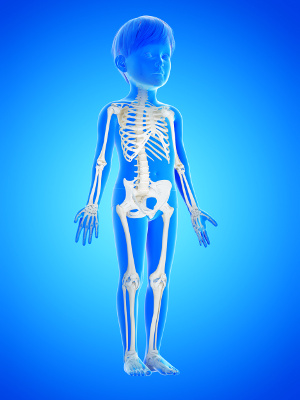
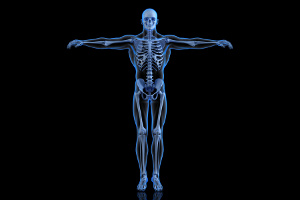 Bone fractures can be fatal, especially in old age where hip fractures typically result in hospitalization and early death. According to a study from Edith Cowan University in Australia, increased intake of
Bone fractures can be fatal, especially in old age where hip fractures typically result in hospitalization and early death. According to a study from Edith Cowan University in Australia, increased intake of 


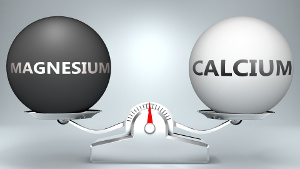
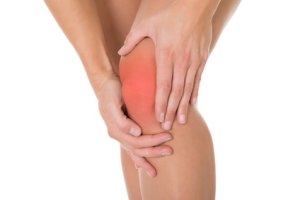 According to researchers, women with weak thighs and hamstrings have an increased risk of developing knee osteoarthritis. Of course, leg muscle exercise is important for preventing this condition, but adequate nutrient intake and maintenance of the right body weight also contribute. For those who are already affected by knee osteoarthritis, glucosamine supplements can be useful. Make sure to choose glucosamine sulfate and to stick with glucosamine supplements that are listed as medical drugs if you want to be sure to obtain the desired effect.
According to researchers, women with weak thighs and hamstrings have an increased risk of developing knee osteoarthritis. Of course, leg muscle exercise is important for preventing this condition, but adequate nutrient intake and maintenance of the right body weight also contribute. For those who are already affected by knee osteoarthritis, glucosamine supplements can be useful. Make sure to choose glucosamine sulfate and to stick with glucosamine supplements that are listed as medical drugs if you want to be sure to obtain the desired effect. "After about one week of taking the Q10 supplement I could feel a huge difference," says 23-year old Alan Piccini, who has been suffering from extreme fatigue and muscle aches ever since he was a child.
"After about one week of taking the Q10 supplement I could feel a huge difference," says 23-year old Alan Piccini, who has been suffering from extreme fatigue and muscle aches ever since he was a child. “Taking capsules with co-enzyme Q10 has freed me of the severe side effects of my cholesterol lowering medicine,” Mrs Franken explains.
“Taking capsules with co-enzyme Q10 has freed me of the severe side effects of my cholesterol lowering medicine,” Mrs Franken explains.